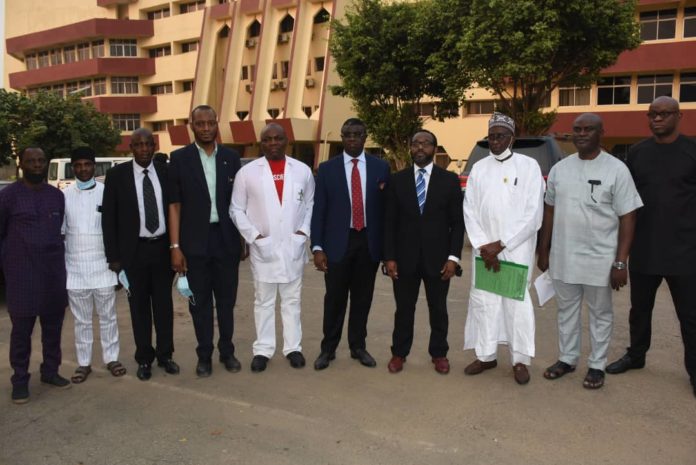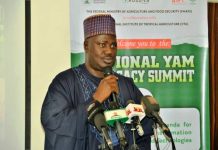
As part of effort by the Federal government to monitor and assess the implementation of intervention projects under the Economic Sustainability Plan (ESP) in line with President Muhammadu Buhari’s result-oriented administration, the Minister of State, Budget and National Planning, Prince Clem Ikanade Agba, carried out an inspection tour of the National Institute of Pharmaceutical Research and Development (NIPRD), Idu- Abuja.
Addressing journalists during the visit, Agba said an intervention fund in the sum of N4 billion was given to the NIPRD to help fix the poor state of the Institute in terms of broken fences, leaking roofs, lack of resources, poor infrastructure and ultimately enhance the performance of the Institute, among others.
Comparing the level of achievement in terms of funds invested in the Institute, Agba commended the management of the Institute for judicious management of the resources.
“We’ve seen the equipment that have been bought; we were told about 90 pieces of equipment were procured but only a few of them have been installed due to lack of stable power supply.
”I know, in the 2022 budget, working in collaboration with the current Honourable Minister of Power, he has chosen 10 institutions where he is going to focus on this year, to have dedicated upgrade of power i.e. solar power supply.

“I would be discussing with him to see what we can do here to ensure that the equipment that have been bought do not go bad especially since they require 24 hours power supply,” he stressed.
He noted the capabilities brought into the system by the present administration due to the discovery of a huge deficit in health infrastructure by the Presidential Task Force on Covid-19 since the pandemic broke out.
The minister further disclosed that NIPRD, NAFDAC and 52 federal tertiary health institutions were identified by the ESP to help build resilience in the health sector, consequently, they were the beneficiaries of the intervention funds.
Speaking earlier, the Director General of NIPRD, Dr Peter Obi Adigwe, expressed joy at the massive improvement in the institute since the receipt of the intervention fund. He explained that the fund was spent on such areas as procurement of over 90 state-of-the-art equipment which had brought the institute to a world-class level, infrastructure upgrade to good laboratory international standards; ongoing covid-19-‘related research and development projects as NIPRD was one of the first to produce hand sanitizers with locally sourced materials, evidence gathering and knowledge building, capacity building of staff and researchers, as well as several ongoing auxiliary projects using the funds provided.
Dr Adigwe also said that the institution, with the help of the intervention fund had trained thousands of herbal medicine practitioners with the goal of bringing them into the mainstream in order to conserve and portray their inherited knowledge in a scientifically-valid manner.
However, Adigwe appealed for more intervention in key areas: Increased prioritization of the pharmaceutical sector, being that the sector was one of the biggest drivers of employment and eradication of poverty with projects situated across the 36 states of the federation; need for improvement in the overhead and running cost of the agency and more bilateral supports to be able to transform the national pharmaceutical sector.
Imaobong Udoh,
for: D/Information(BNP)
17/01/2022.





